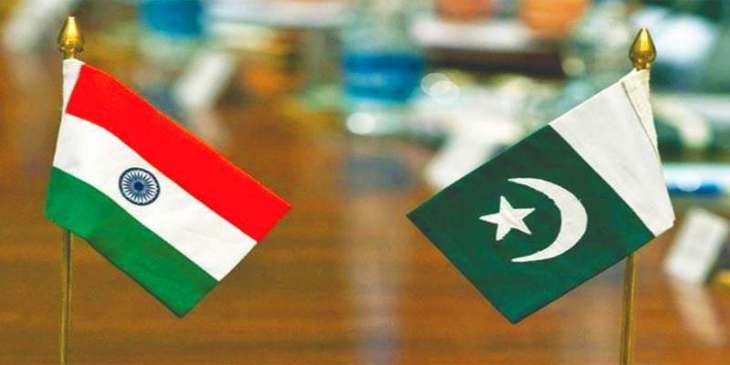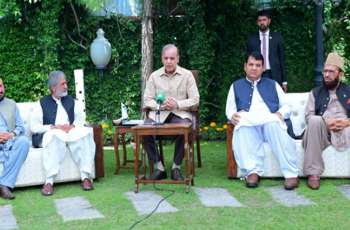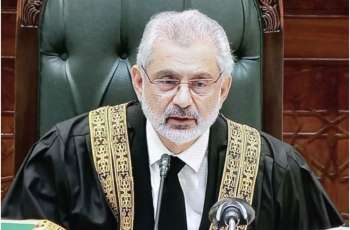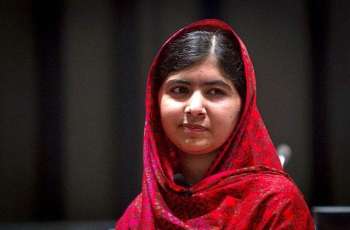The Center for International Strategic Studies arranged round table discussion on “Brokering Peace in Nuclear Environments: US Crisis Management in South Asia” on Wednesday here in Islamabad.
ISLAMABAD, (Pakistan Point News - 07th Feb, 2018) : The Center for International Strategic Studies arranged round table discussion on “Brokering Peace in Nuclear Environments: US Crisis Management in South Asia” on Wednesday here in Islamabad. Dr. Moeed Yusuf, Associate Vice President for Asia programs at the US Institute of Peace (USIP) participated, as key note speaker on the occasion. Dr. Yusuf discussed his forthcoming book, Brokering Peace in Nuclear Environments: US Crisis Management in South Asia, which will be published by the prestigious Stanford University Press in May this year.
He said that book aimed to expound upon the implications of third party involvement in crises between regional nuclear powers like India and Pakistan. This is the first book that studies the effects of the presence of nuclear weapons on the behavior of global powers like the United States as they try to influence behavior of regional nuclear rivals. The author presented his model of crisis management called brokered bargaining. He pointed out that the contemporary concepts pertaining to deterrence are based on what was learnt during the Cold War Crises that emerged during this period focused on the United States and Soviet Union and were not influenced by the involvement of a stronger third party.
In South Asia, however, the situation is rather different. US involvement in crises between India and Pakistan since their nuclear tests in 1998 has been consistent and it will be inevitable in the future. The presence of nuclear weapons ensures this. Pakistan must be prepared to deal with this reality irrespective of the state of its relationship with the US. Dr. Yusuf proposed that India and Pakistan will be compelled to engage with the US and even other strong powers like China and try and achieve their crisis objectives through them rather than contemplating direct conflict in a nuclear environment.
These third party states however will be most interested in ensuring crisis de-escalation given their concerns about nuclear war between India and Pakistan ahead of their alliances in the region. It is therefore not necessary that the US will back India and China will support Pakistan in a crisis situation. Dr. Yusuf applied this framework in the case of South Asia, and specifically to past crises between India and Pakistan, citing instances of Kargil, 2001-2002, and Mumbai, and explained how all the actors conformed to the above model.
In all the major crises, both India and Pakistan signaled their intent to stand their ground and not give in to pressure while in reality, they also worked hard to get US support against their opponent by making concessions and conceding to its demands in return for its backing. In 2001, for example, India and Pakistan both mobilized their forces and refused to withdraw for ten months despite U.S. pressure. Eventually, though, Pakistan agreed to crack down on anti-India militants and India was prevented from launching a military attack on Pakistan.
US and Chinese role was significant in achieving these outcomes. Similar patterns were followed in other crises between the two countries. Interestingly, brokered bargaining postulates that the third parties may make promises of adopting certain policies that are acceptable to the regional rivals during crises to encourage steps on the part of the regional rivals to de-escalate, but may not pursue them subsequently once the crisis is over.
This makes the rivals distrust the third parties and could make it more difficult for the US and other third parties to influence the behavior of countries like India and Pakistan in subsequent crises. Today, with the deep mistrust in the US-Pakistan relationship, US influence over Islamabad in the next crisis may be questionable. At the same time, China may not be able to provide the kind of support Pakistan expects. The book highlights several risks involved in third party mediation in nuclear crises in South Asia and in other regions like the Korean peninsula.
Overall, this work is a rare example of a well-known Pakistani scholar producing a major contribution to the world’s understanding of regional nuclear crises and the dangers of nuclear war. Pakistani and Indian policymakers have a lot to gain from the book’s conclusions and recommendations. In his concluding remarks, Executive Director CISS Ambassador Ali Sarwar Naqvi made the following points. First, deterrence in South Asia has worked for near 20 years of overt nuclear capability achieved by India and Pakistan.
There is perhaps an innate rationality, not always apparent, in the behavior of the two countries. Second, the theory needed to define what constitutes a nuclear crisis, as the features of a conventional military crisis, as against a nuclear crisis are better defined. Third, so far the US role as a third party was rational, but with the Trump Presidency, it may not be the case in the future. The round-table was well-attended, including retired diplomats, academic scholars and other experts.




